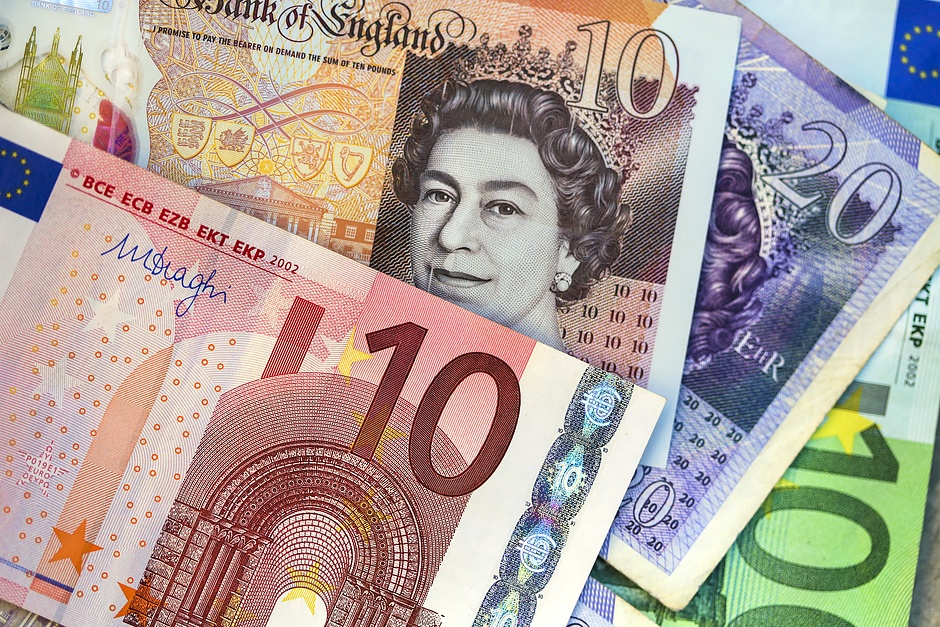EUR/GBP weakens below 0.8450, traders await Eurozone inflation data for fresh impetus
- EUR/GBP extends its downside around 0.8415 in Thursday’s early European session, losing 0.20% on the day.
- Rising expectation of additional rate cuts by the ECB weighs on the Euro.
- BoE’s Bailey 'cautiously optimistic' inflationary pressures in the UK are easing, but it’s too early to declare a victory.
- The Eurozone flash HICP inflation data for August will be in the spotlight on Friday.

The EUR/GBP cross trades in negative territory for the seventh consecutive day near 0.8415 during the early European session on Thursday. The higher bets that the European Central Bank (ECB) will cut interest rates again in its September meeting further weigh on the Euro (EUR) against the Pound Sterling (GBP).
ECB Governing Council member Klaas Knot said on Wednesday that he awaited more information before deciding on whether to support an interest rate cut in September. However, markets expect the ECB to lower the borrowing costs next month amid easing price pressures and an uncertain economic outlook.
The flash estimate of the Eurozone Harmonized Index of Consumer Prices (HICP) will be released on Friday. The headline inflation is estimated to ease to 2.2% YoY in August from 2.6% prior, while the core CPI inflation is expected to drop to 2.8% YoY in August from 2.9% in the previous reading. In case of the hotter-than-expected outcome, this might lift the shared currency and cap the downside for EUR/GBP.
On the other hand, stronger than forecast economic data in recent months and optimism about the new Labour government underpin the GBP. The comments from the Bank of England (BoE) Andrew Bailey also support the GBP. Bailey stated that “policy setting will need to remain restrictive for sufficiently long until the risks to inflation remaining sustainably around the 2% target in the medium term have dissipated further. The course will therefore be a steady one.” Economists anticipate one more 25 basis points (bps) rate cut from the BoE this year, according to a Reuters poll.
Pound Sterling FAQs
The Pound Sterling (GBP) is the oldest currency in the world (886 AD) and the official currency of the United Kingdom. It is the fourth most traded unit for foreign exchange (FX) in the world, accounting for 12% of all transactions, averaging $630 billion a day, according to 2022 data. Its key trading pairs are GBP/USD, aka ‘Cable’, which accounts for 11% of FX, GBP/JPY, or the ‘Dragon’ as it is known by traders (3%), and EUR/GBP (2%). The Pound Sterling is issued by the Bank of England (BoE).
The single most important factor influencing the value of the Pound Sterling is monetary policy decided by the Bank of England. The BoE bases its decisions on whether it has achieved its primary goal of “price stability” – a steady inflation rate of around 2%. Its primary tool for achieving this is the adjustment of interest rates. When inflation is too high, the BoE will try to rein it in by raising interest rates, making it more expensive for people and businesses to access credit. This is generally positive for GBP, as higher interest rates make the UK a more attractive place for global investors to park their money. When inflation falls too low it is a sign economic growth is slowing. In this scenario, the BoE will consider lowering interest rates to cheapen credit so businesses will borrow more to invest in growth-generating projects.
Data releases gauge the health of the economy and can impact the value of the Pound Sterling. Indicators such as GDP, Manufacturing and Services PMIs, and employment can all influence the direction of the GBP. A strong economy is good for Sterling. Not only does it attract more foreign investment but it may encourage the BoE to put up interest rates, which will directly strengthen GBP. Otherwise, if economic data is weak, the Pound Sterling is likely to fall.
Another significant data release for the Pound Sterling is the Trade Balance. This indicator measures the difference between what a country earns from its exports and what it spends on imports over a given period. If a country produces highly sought-after exports, its currency will benefit purely from the extra demand created from foreign buyers seeking to purchase these goods. Therefore, a positive net Trade Balance strengthens a currency and vice versa for a negative balance.
Author

Lallalit Srijandorn
FXStreet
Lallalit Srijandorn is a Parisian at heart. She has lived in France since 2019 and now becomes a digital entrepreneur based in Paris and Bangkok.

















